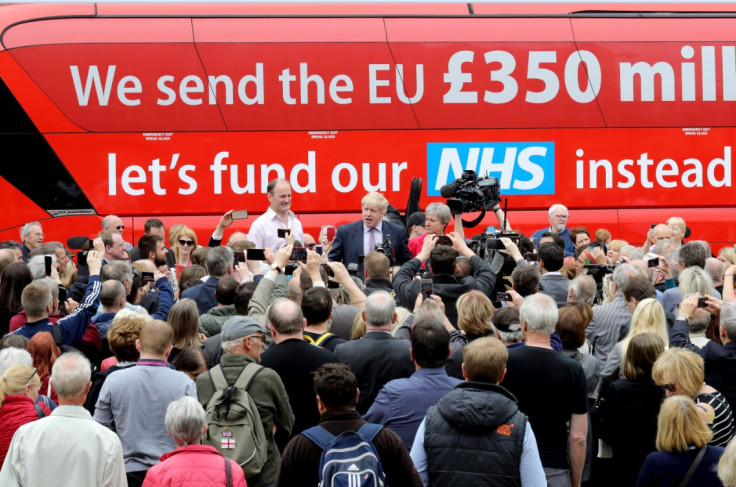EU referendum: Constitutional expert warns of 'truthfulness hole' in Brexit debate
The British electorate have been bombarded with numerous claims and statistics throughout the EU referendum campaign, but there is no official independent arbiter to test their validity and hold groups to account. This has led Dr Alan Renwick, the deputy director of University College London's Constitution Unit, to warn of a "hole" in the system.
"Obviously direct democracy can be great in the sense that it gives people a direct say over issues, but it can be very problematic if they are making decisions on the basis of misinformation," he told IBTimes UK. "In order to really improve the quality of democracy we need not just more public participation but also more thoughtful and engaged participation."
However, Renwick claimed the referendum campaign has seen the evolution of independent fact-checking mechanisms.
The academic points to interventions from the House of Commons' Treasury Select Committee and the UK statistics authority.
"We have a bit of a hole in the system with referendums – there's no formalised check on the quality of debate and that's really important – but we are kind of evolving something somehow that I think is really interesting," he explained.
The cross-party Treasury Committee, chaired by Conservative MP Andrew Tyrie, criticised both campaigns – Britain Stronger In Europe and Vote Leave – when it reported in May. "The arms race of ever more lurid claims and counter-claims made by both the leave and remain sides is not just confusing the public – it is impoverishing political debate," Tyrie declared.
The group of MPs also attacked Vote Leave's claim that the UK spends £350m ($506m) a week on its EU membership. The UK Statistics Authority also raised concerns about the figure, with Sir Andrew Dilnot writing to Vote Leave.
"The UK's official gross contribution for 2014 before the application of the rebate was £19.1bn. As I have made clear previously, this is not an amount of money that the UK pays to the EU each year. The full £19.1bn is not a net contribution," he said.
Some countries, such as New Zealand and Ireland, have seen more hands-on roles from independent commissions during referendums. But Renwick warned the "great scepticism" around official pronouncements during the EU campaign means the UK could be better off with the mechanisms that seem to be developing.
"If you were to create an official fact-checker, then it would be rubbished by whoever it criticised. It may actually be that this kind of organic development of various different mechanisms is the better way forward," he said.

© Copyright IBTimes 2024. All rights reserved.






